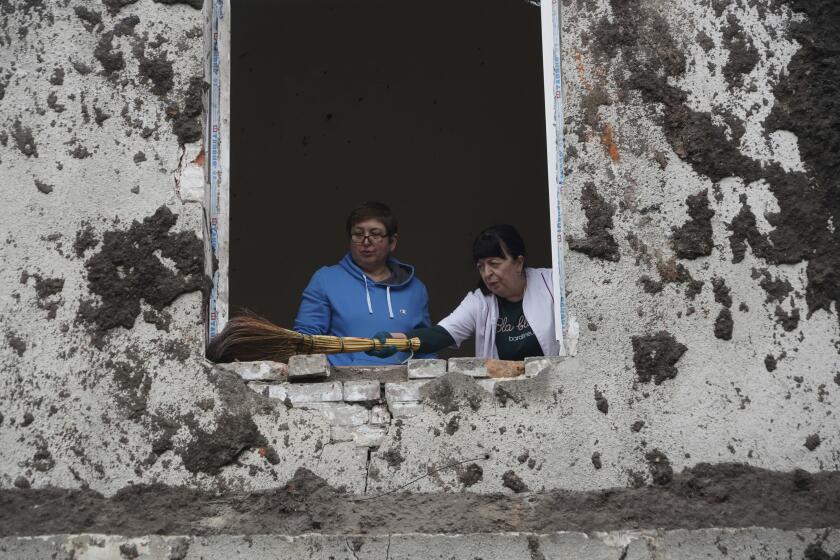Fired CIA Officer Likely Won’t Face Charges Over Leak
Despite the CIA’s goal of cracking down on leaks of classified information, the government may forgo criminal charges against a senior agency officer fired last week for disclosing operational secrets, according to current and former intelligence and law enforcement officials.
The officials cited a number of obstacles to pursuing the case, including that the employee was fired in part over polygraph results that would not be admissible as evidence and that she was accused of leaking secrets the government would be reluctant to air in court.
The strength of the CIA’s evidence against the fired employee, Mary O. McCarthy, also has come under scrutiny. McCarthy’s attorney, Ty Cobb, said that contrary to the CIA’s statement last week, she did not disclose classified information or confess to doing so to agency investigators.
Asked about the possibility of prosecution, Cobb said: “I don’t think there’s any basis at all here for further action. We deny that she leaked classified information and deny that she had access to the information attributed to her.”
The CIA announced the firing Friday, saying that a senior employee -- subsequently identified by other intelligence officials as McCarthy -- had admitted to unauthorized contacts with the media and to disclosures of classified information.
In particular, McCarthy was accused of contacts with a reporter for the Washington Post who won a Pulitzer Prize this month for stories about secret CIA prison facilities overseas for terrorism suspects.
A spokesman for the CIA, Paul Gimigliano, said Tuesday that the agency “stands by the statements it has made on this issue from the start.”
McCarthy had been a CIA employee for two decades, starting as an Africa analyst and later moving into senior positions on the National Security Council staff at the White House and, most recently, in the CIA’s inspector general’s office.
Cobb said that McCarthy, 61, was fired 10 days before she was scheduled to retire.
Former colleagues described her as cautious and respected. “I thought she was a competent, quiet, good intelligence officer,” said Richard J. Kerr, a former deputy CIA director who worked with McCarthy. “She was certainly someone you had respect for and saw not as an ideologue or someone who would end up putting herself in this position.”
McCarthy recently earned a law degree from Georgetown University, Cobb said, and intended to practice family law after her retirement from the CIA.
The agency’s internal probe is part of a broader government campaign against leaks. In recent months, FBI agents have interviewed current and former Justice Department officials in connection with an ongoing probe into the sources for New York Times stories last year on a secret counter-terrorism program in which the National Security Agency eavesdropped on the international phone calls of U.S. residents.
The probe also focused on employees at the NSA, the nation’s largest intelligence agency. An NSA spokesman, speaking on condition of anonymity in keeping with agency guidelines, said Tuesday that the NSA was “cooperating fully with the Department of Justice regarding the investigation,” but declined to elaborate, citing the “sensitive nature of any investigation, especially one involving the disclosure of classified information.”
But the internal CIA investigation has been unusually swift and aggressive, current and former officials said. In the last several months, the agency has conducted dozens of “single-issue” polygraph examinations in which senior officers were asked exclusively about contacts with news organizations and disclosures of classified information.
Senior agency officials, including CIA Director Porter J. Goss and Inspector General John L. Helgerson, voluntarily submitted to polygraph tests to show their willingness to be subjected to the same scrutiny as other employees, agency officials said.
But the examinations have mainly been focused on employees Goss referred to in an internal e-mail last week as “officers involved in or exposed to certain compartmented programs.”
Among those programs is the operation of overseas prison facilities where the CIA has held and interrogated Al Qaeda operatives, including Sept. 11 mastermind Khalid Shaikh Mohammed.
Cobb said McCarthy “didn’t have access to the information attributed to her,” meaning knowledge of the locations of those prison facilities and other details about their operation. But other former CIA officials said that McCarthy was involved in an inspector general’s review of agency detention operations that was triggered by the Abu Ghraib prison scandal in Iraq, and that she would have had access to a great deal of sensitive information about the CIA’s prison facilities.
That knowledge may now afford her some protection from prosecution, current and former officials said, because a trial would risk spilling other secrets and require the government to prove that information she disclosed was classified.
The CIA routinely videotapes polygraph sessions, meaning it probably has a record showing whether she confessed to disclosing classified information. But officials said it was unclear whether her statements during the examination, or under subsequent questioning, could be used in a trial.
“A court might say that anything derived from the polygraph is poisoned fruit,” said a former CIA attorney who asked not to be identified.
As of Tuesday, the CIA had not referred McCarthy’s case to the Justice Department, according to a U.S. official familiar with the case who spoke on condition of anonymity because of the ongoing internal investigation.
*
Times staff writer Richard B. Schmitt contributed to this report.
More to Read
Start your day right
Sign up for Essential California for news, features and recommendations from the L.A. Times and beyond in your inbox six days a week.
You may occasionally receive promotional content from the Los Angeles Times.






